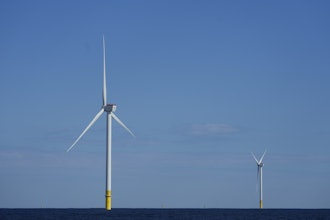In 1999, when New Jersey deregulated its energy industry, businesses were able to buy energy from third-party suppliers, just like any other commodity.
Not surprisingly, the cost-savings aspect of energy buying was most attractive to the members of the Chemistry Council of New Jersey (CCNJ), which decided to form an Energy Purchasing Program.
“Energy is a big issue in New Jersey,” said Hal Bozarth, executive director of the CCNJ, a trade association representing the interests of chemical manufacturers in New Jersey, “due to the fact that New Jersey has the fourth highest rates in the nation, 50 percent above the national average.”
Energy costs are a huge concern for chemical manufacturers - they are the largest industrial consumer of natural gas in the U.S. - so the CCNJ was a big proponent of deregulation.
“The high cost of energy is one of the main reasons the U.S. is losing its manufacturing base to foreign competitors,” said Bozarth. “We must keep the price of electricity low and increase our supply of natural gas. And we need to invest in atomic energy power, nuclear power and wind power to keep energy sources readily available and affordable.”
Back in 1999, CCNJ members had massive energy needs - 200 megawatts - so it made perfect sense to pool their energy buying resources and buy in bulk. Of the CCNJ’s 90 members, 58 joined the program and, since 1999, the members have saved $60 million in energy dollars, an average of about $1.4 million in savings per company. The CCNJ is now the largest independent energy aggregation in the U.S.
“With our Energy Purchasing Plan, third-party energy suppliers really have to compete for our business, and this has the desired effect of lowering prices,” noted Bozarth. “There really is no reason for a company to just use their local provider or the one they have always been using when utilities have been deregulated.”
According to Bozarth, companies can save an average of 13 percent to 20 percent off energy prices by shopping for the best energy plan.
But how did the CCNJ to find the best-priced energy supplier for its members?
“One thing we realized right away was that we couldn’t do all the work ourselves. We had the energy buying power,” said Bozarth, “but not the expertise.”
The CCNJ hired an energy procurement consultant, EPEX Inc., headquartered in Exton, Pa., to help negotiate contracts for member companies. The staff at EPEX knew the energy market and knew how to buy energy.
“It’s easier for utilities to bill one entity instead of several individual companies, and there is less risk for the utility when they can supply energy in a large load,” said John Kaufman, principal at EPEX.
Kaufman explained that a utility cannot purchase energy in small quantities for individual users, it can only buy energy in large quantities and then parcel the energy out to customers, speculating that there will be enough users who will want the amount of energy the utility has purchased.
“Because of this buying situation, utilities have to bill at a premium,” Kaufman said. “But the utilities prefer when they can buy in bulk for a consortium, such as the CCNJ, because they know how much energy they will be selling when they go to make their purchases.”
One of the benefits of outsourcing energy procurement is that the companies can concentrate on their core businesses and not have to worry about the day-to-day fluctuations of energy supplies or prices.
“We do the ‘legwork,’ ” said Kaufman, “and negotiate for the best energy price, but the energy (gas, electricity) comes from the same source, the same pipes, etc., and the final decision as to whether to sign a contract for the energy supply rests with the purchaser, not us.”
The CCNJ is now going back into the market to renegotiate some contracts – but this time, although is has about the same number of companies in the buying program, the buying power is up to 350 megawatts.
“And other factors have changed, too,” noted Bozarth. “When we began the buying plan, energy prices were locked in for the length of the contract. But the CCNJ and the utilities have become more sophisticated in buying power and knowledge, and some chemical manufacturers are finding that a flexible contract better suits their needs. It depends on whether a company wants a no-risk plan or one with more risk.”
With a no-risk plan a company buys a block of power at one price for the length of the contract. But many companies, especially larger organizations, buy power under a “block-and-index” pricing plan.
“The ‘block-and-index’ pricing allows a company to buy blocks of power at a certain rate,” explained Bozarth, “and then buy additional needed power at the going rate. Although this type of plan is riskier, it can save money in the long run, especially for large energy users.”


















